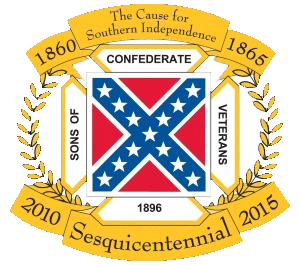
by Jim W. Dean
with sesquicentennial guest commentary by Steve Scroggins
It is my pleasure to introduce VT readers to my old friend Steve Scroggins, a fellow founding member of the Georgia Heritage Council, its long time webmaster, researcher/writer and satirist extraordinaire.
GHC was founded to take more of a big tent approach to the heritage/culture wars heating up around the country. We correctly sensed the old ‘divide and conquer’ game was in full swing with some ulterior motives involved.
The ensuing devastation that the country has incurred proved us right. Most never saw it coming. We warned…’They want it all’, and were described sometimes as hysterical. The wealth of an entire generation of Americans was stolen. Hysterical? You bet.
VT is not a canary in the mine shaft, but hundreds of them. We also see things coming and do not whisper our concerns. The new website has had a great response and we thank you all. Our depth and breadth will continue to grow and hopefully we will have Steve on board soon as I can promise you he has a lot to share.
The Sesquicentennial is getting a yawn from most of the Yankee States. There are multiple reasons of course…no personal connection, no battlefields, and no cemeteries with 10,000 dead Yankee in them like the one I was at on Memorial Day, Marietta cemetery, with its 3000 unknowns. All were honored.
When the dead and the ghosts are all around you, it’s easier not to forget. Jim W. Dean …Heritage TV – Atlanta
New York’s Sesquicentennial Observance – Commentary by Steve Scroggins
In one of my favorite movies of all time, Lonesome Dove (based on a series of novels by Larry McMurtry), a lead character named Gus McRae (played by Robert Duval) had a fitting line.
After one of their cattle hands (fittingly enough a young Irish immigrant) had just been killed after falling into a swarming group of water moccassins in the Nueces River in southern Texas while trying to cross a herd of cattle on an historic drive from Texas to Montana. The line was… “I God, Woodrow, it’s a bad start.”
McRae, speaking to his partner Woodrow Call, was referring to the beginning of their long journey to Montana. A “bad start” is what comes to mind for this writer as he contemplates another writer’s efforts to get New Yorkers working on their Sesquicentennial observance of the War to Prevent Southern Independence.
First off, in full disclosure, I make no claim to adequate knowledge of New York state history, but I have read quite a bit on this time period in American history. The noted writer provides his own credentials:
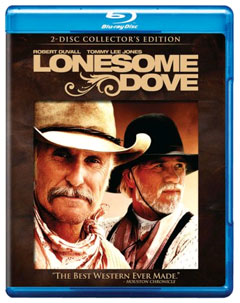 “Bruce W. Dearstyne, Ph.D., of Guilderland, N.Y, is an adjunct professor at the University of Maryland where he was a professor for 8 years. Previously, he was a program director at the NYS Archives, served on the staff of the New York Office of State history, and taught New York and U.S. history at SUNY Potsdam, SUNY Albany, and Russell Sage College. He is the author of Railroads and Railroad Regulation in New York, 1903-1913 and co-author of New York: Yesterday and Today.”
“Bruce W. Dearstyne, Ph.D., of Guilderland, N.Y, is an adjunct professor at the University of Maryland where he was a professor for 8 years. Previously, he was a program director at the NYS Archives, served on the staff of the New York Office of State history, and taught New York and U.S. history at SUNY Potsdam, SUNY Albany, and Russell Sage College. He is the author of Railroads and Railroad Regulation in New York, 1903-1913 and co-author of New York: Yesterday and Today.”
The opening page of his website is entitled, “New York and the Civil War: It’s Time to Re-enlist — 10 Reasons Why the Sesquicentennial Is Important for Our State.” Dr. Dearstynethen opens the list with this nugget:
May 24, 2011 marks the 150th anniversary of the first Union officer killed in the Civil War. Colonel Elmer Ellsworth of Mechanicville, N.Y., was shot by an Alexandria, Virginia hotel owner after tearing down a Confederate flag flying defiantly from the hotel’s rooftop. Ellsworth’s heroic act initiated New York’s critical contribution to the war. New York was first among the states in troops (over 400,000), casualties (more than 46,000), war materiel production, and financial support.
I noted this story entitled, Local war hero celebrated 150 years after his death, a few days ago on a New York TV station website. Local hero? Given their efforts at the Ethnic Cleansing of Dixie in recent years, we’re surprised that the NAACP hasn’t declared Ellsworth a national hero and sought to make his martyrdom a national holiday.
OK, so let’s look at the bare facts. This Ellsworth they are deeming a “local hero” was offended by the “defiant” display of a Confederate flag.
So he went trespassing on another man’s property (the hotel) in another state that had legally declared itself independent, which just happened to be within eyesight of Washington, D.C., and stole the owner’s flag. And he was shot and killed for his efforts.
And given the tensions at that time (Lincoln’s declared intent to make war, Virginia’s secession in protest after said declaration)…Ellsworth certainly had to know that venturing into Virginia to steal someone’s flag was a risky, if not foolhardy, undertaking.
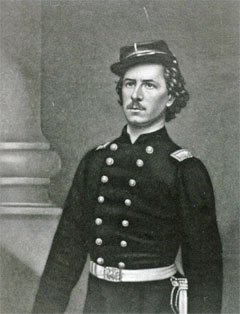
But he’s given credit for not sending some lowly subordinate to do it. How noble. The incident does give new meaning to Virginia’s state seal and state motto: “Sic Semper Tyrannis”… “Thus Always to Tyrants.”
The seal, which shows a defender with sword and spear standing astride a prone tyrant, is shown affixed to the Proclamation from Virginia’s Governor John Letcher in response to Lincoln’s appeal for troops with which to invade the South. As we noted tongue-in-cheek at the time on Facebook, “Slipping… We used to defend our Confederate flags with more passion.”
I’ll concede that homicide is perhaps an excessive response to such a theft — but we are reminded that it is the person who renders force necessary who has started the fight.
But the larger point here is that New York is putting forth this swaggering Yankee thief Ellsworth as a hero, the first Union Officer killed during the war. I’m almost speechless. Almost.
When you think about it, it does seem fitting that the first Union officer killed should be killed for stealing private property…and for having the audacity to think he was right in doing so. It seems the perfect allegory, the perfect parable for the morality play that was the war and it stands as a superior reason to start the war compared to Fort Sumter in which no one was killed by Confederate fire.
Two yankee soldiers were killed AFTER the surrender, but they were killed in an accidental explosion as they prepared to fire a cannon salute to their flag as they lowered it to leave Fort Sumter. Tragic ignorance writ large. We tipped our hat to author Thomas DiLorenzo back on April 12th, when he noted on the LewRockwell.com blog about the 150th Anniversary that:
- Fort Sumter Death Toll: 1 horse, no humans
- Death Toll From Lincoln’s Response to Fort Sumter: 670,000 humans (including 50,000 Southern civilians); thousands of horses
With Ellsworth’s death, now we have a solid begin date –May 24, 1861– to put on Sherman’s Vandalism. In the end, that really summarizes the entire war effort. The Southern states were looted, burned and robbed for the financial benefit of the northern states…but the soldiers who carried out the crime were simply miffed because the Southern states were…”defiant.” They were offended that the Southern states exercised their right to self-government and self determination and they were determined—-at whatever the cost—- to force the South to bend to their preferences.
Dr. Dearstyne goes on to note that at least forty (40) Union generals hailed from New York including John A. Dix who is noted to be a former senator and future governor, and who was Secretary of the Treasury in 1861. According to Dearstyne, Dix telegraphed Treasury agents in New Orleans: “If any one attempts to haul down the American flag, shoot him on the spot.”
Oh! So, it’s OK to shoot people in New Orleans who might be offended by U.S. Flags… but if someone shoots a New Yorker in Alexandria, Virginia, for stealing flags, they risk creating a martyr. Hmmm… Appointed a general in the Union army, Dix adds to his heroic resume by arresting pro-Confederate members of the Maryland state legislature to prevent a vote on secession, negotiating prisoner exchange with a Confederate general, and commanding federal troops in suppressing the 1863 draft riot, and “working effectively withNew York City officials to organize peaceful resumption of the draft a month later.”
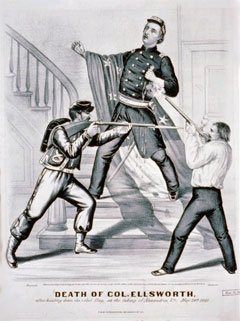
Of course, Dearstyne didn’t mention the many deaths of civilians, immigrants and various citizens who died as a result of the “order” Dix restored. In the end, recruiting immigrants off-the-boat to go south and loot another country resumed to D.C.’s satisfaction. The New York Draft Riots did illustrate that many in the North and, in New York in particular, were not in agreement with Lincoln’s war policies or goals. It also illustrates that Lincoln was willing to use brutal force to suppress any dissent.
Arresting state legislators without legal cause or due process and killing civilians rioting over the draft…wow! Dix had some tough assignments, I’ll give him that. Perhaps he should have paused and reflected on his ultimate moral duty. Robert E. Lee faced similar assignments, had he remained in the U.S. Army, but Lee resigned rather than accept orders to carry out an illegal and immoral war against fellow Americans and citizens of his native state in order to suppress their rights. There’s little doubt, at least for this writer, as to which serves as the better moral example.
In Dearstyne’s defense, he does mention Erastus Corning and other New Yorkers who protested the draft and the arrest of civilians (after suspension of habeas corpus) by the Lincoln horde of loyalty brownshirts. He mentions New York City’s mayor who suggested that NYC should secede (we note the irony here) from the state and form an independent city apart from D.C. rule. He mentions the criticisms of the Emancipation Proclamation.
We should explore all these aspects in more detail. We should applaud Dearstyne’s efforts to generate New Yorker interest in the sesquicentennial and New York’s role in the war. Any effort to understand the facts and the truth is commendable, but given the majority of what the north and New York put forward as “heroic” and as “heroes”… we can understand why New York’s enthusiam is lacking.
What Dearstyne calls New York’s “modesty” would more properly be called shame. Or is it just confidence that “might makes right?” And, perhaps they just don’t want to gloat since their armies won the war…ignoring, of course, that ALL Americans lost liberties…and that the voluntary Republic our Founders gave us was destroyed by their efforts. War is always a terrible waste.
It is perhaps cliche to say that “Freedom isn’t free” but as we reflect on the sacrifices of our veterans this Memorial Day, it is fitting that we remember this most terrible of our wars. In human terms, it cost more American lives (620,000+ soldiers and 50,000+ civilians) than in all our other wars combined. It is remembrance of these soldiers that inspired the traditions that led to Memorial Day observances of various flavors in the South and across the country…notably at Arlington Cemetery, land stolen by the U.S. Government from Robert E. Lee and his heirs.
To honor all those Americans who made the ultimate sacrfice, we should resolve to put forth our best efforts and energies to prevent such sacrifice in the future and to restoring the liberties we have let slip away or be ripped away in the last 150 years. We owe it to our ancestors and to our posterity.
“[I]t wasn’t because our fathers knew what they were fighting for that they were heroes. They didn’t know what they were fighting for, exactly, and they fought on anyway. That’s what made them heroes.” —New York Commander of the Sons of Union Veterans, as quoted by James M. McPherson in his 1994 book, What They Fought For, 1861-1865 — Why the Terrible Destruction of the Civil War? – by Jeff Riggenbach
“Northern soldiers by and large said they were fighting to preserve what their ancestors had bequeathed to them: the Union. Southern soldiers also referred to their ancestors, but they typically argued that the real legacy of the Founding Fathers was not so much the Union as the principle of self-government. Very often we see Southern soldiers comparing the South’s struggle against the U.S. government to the colonies’ struggle against Britain. Both, in their view, were wars of secession fought in order to preserve self-government.” —Thomas Woods, Jr., from Politically Incorrect Guide to American History
“But slavery was far from being the sole cause of the prolonged conflict. Neither its destruction on the one hand, nor its defence on the other, was the energizing force that held the contending armies to four years of bloody work. I apprehend that if all living Union soldiers were summoned to the witness-stand, every one of them would testify that it was the preservation of the American Union and not the destruction of Southern slavery that induced him to volunteer at the call of his country. As for the South, it is enough to say that perhaps eighty percent of her armies were neither slave-holders, nor had the remotest interest in the institution. No other proof, however, is needed than the undeniable fact that at any period of the war from its beginning to near its close the South could have saved slavery by simply laying down its arms and returning to the Union.” –General John B. Gordon, from Reminiscences of the Civil War, page 19
“The Gettysburg speech was at once the shortest and the most famous oration in American history… The doctrine is simply this: that the Union soldiers who died at Gettysburg sacrificed their lives to the cause of self-determination – that government of the people, by the people, for the people, should not perish from the earth. It is difficult to imagine anything more untrue. The Union soldiers in the battle actually fought against self-determination; it was the Confederates who fought for the right of their people to govern themselves.” –H.L. Mencken [emphasis added]
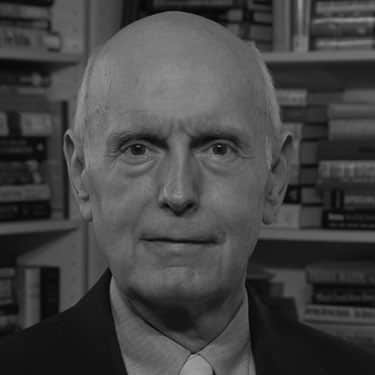
Jim W. Dean was an active editor on VT from 2010-2022. He was involved in operations, development, and writing, plus an active schedule of TV and radio interviews.
ATTENTION READERS
We See The World From All Sides and Want YOU To Be Fully InformedIn fact, intentional disinformation is a disgraceful scourge in media today. So to assuage any possible errant incorrect information posted herein, we strongly encourage you to seek corroboration from other non-VT sources before forming an educated opinion.
About VT - Policies & Disclosures - Comment Policy



